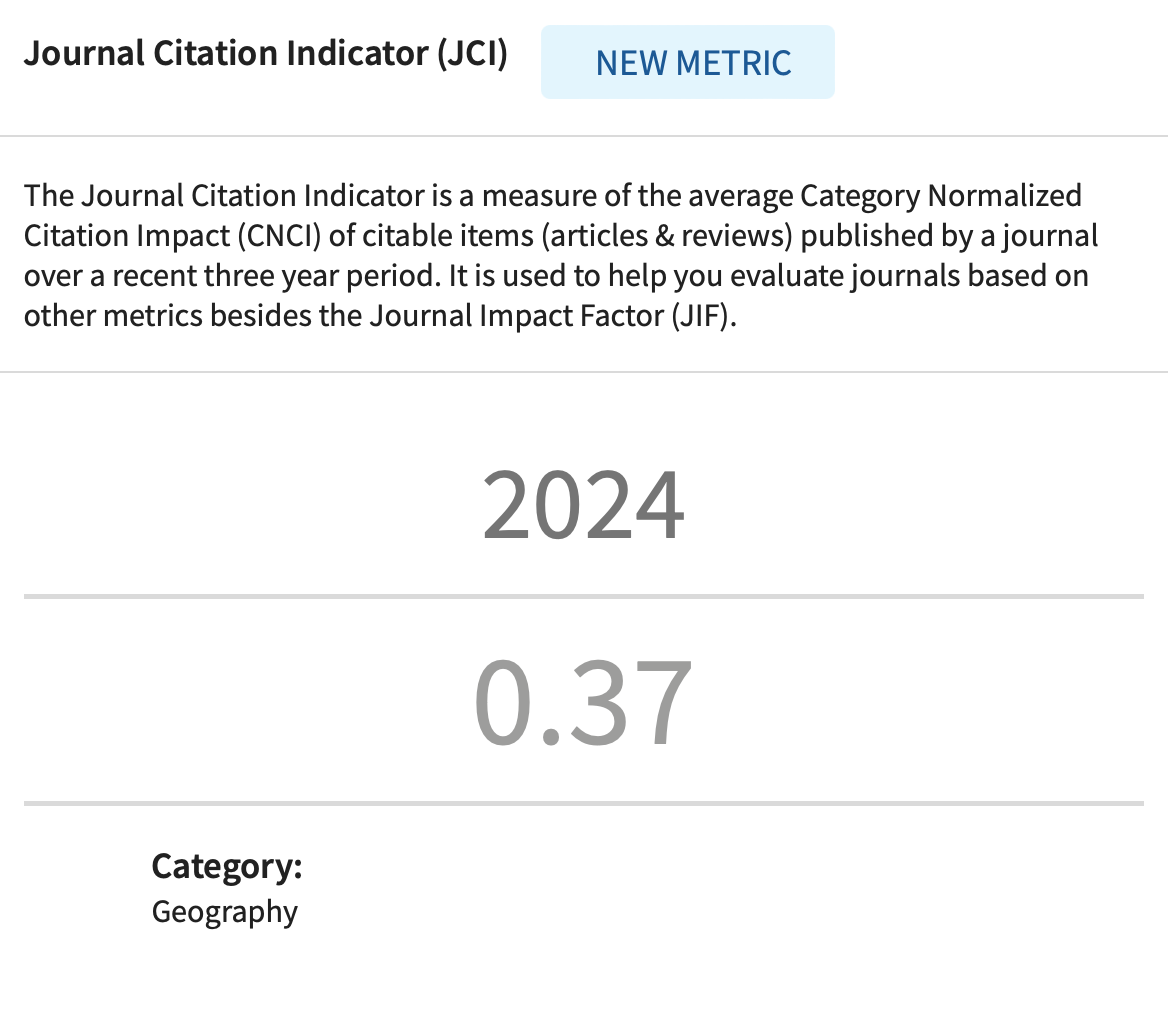PAST STUDIES AND POTENTIAL MEASURES FOR REHABILITATION OF THE SHALLOW LAKE (LAKE LUDAŠ)
DOI:
https://doi.org/10.2298/IJGI2001071CKeywords:
shallow lake, Serbia, ecosystem assessment, lake degradation, revitalizationAbstract
Lake Ludaš has been under a strong anthropogenic influence for a very long time, so the history of fruitful scientific investigation was very often connected with the evaluation of a human impact and potential rehabilitation measures. Unfortunately, attempts to improve the lake's natural status remain more in the field of theoretical models than concrete practical solutions. Aiming to better understand the potential of different rehabilitation measures for Lake Ludaš, we combined our ecological analyses (unpublished results) and the literature survey. The continuous massive cyanobacterial bloom and the formation of a thick sediment layer rich in different organic and inorganic pollutants represent two major challenges in the lake's rehabilitation. The unknown ecological role of invasive species that have already colonised Lake Ludaš will make the attempts to improve conditions in the lake even more challenging. The reduction of nutrient load, changes in the intensity and directions of water circulation, as well as top sediment layer removal in the lake, are measures under consideration for several decades. But their combination, order of implementation and possibilities of successful execution are still under debate. However, there is no doubt that the restoration of a natural hydrological regime should be a key step in the rehabilitation of Lake Ludaš.
Article metrics
References
Bukurov, B. (1954). Jezera i bare u Bačkoj [Lakes and ponds in Bačka]. Zbornik Matice srpske za prirodne nauke, 5, 51–60.
Chislock, M. F., Doster, E., Zitomer, R. A., & Wilson, A. E. (2013). Eutrophication: Causes, Consequences, and Controls in Aquatic Ecosystems. Nature Education Knowledge, 4(4), 10. Retrieved from https://www.nature.com/scitable/knowledge/library/eutrophication-causes-consequences-and-controls-in-aquatic-102364466/
Cooke, G. D. (1999). Ecosystem rehabilitation. Lake and Reservoir Management, 15(1), 1–4. https://doi.org/10.1080/07438149909353947
Ćirić, M., Gavrilović, B., Dojčinović, B., Cao, X., Song, C., & Zhou, Y. (2019). Changes in phytoplankton community structure along the physicochemical gradients in Lake Ludaš (Serbia) [Abstract]. In A. Özkök (Ed.), 5th International Congress on Environmental Research and Technology (ICERAT) (p. 150). Sarajevo, Bosnia and Herzegovina: Zenith Group d.o.o., Hacettepe University, Nobel science and Research Center.
Ćirić, M., Marković, Z., Dulić, Z., & Subakov-Simić G. (2010). First report of cyanobacterium Cylindrospermopsis raciborskii from carp ponds in Serbia [Abstract]. In M. Albay (Ed.), The 8th International Conference on Toxic Cyanobacteria (ICTC8) (p. 14). Istanbul, Turkey: Association of Aquaculture Engineering and Istanbul University, Faculty of Fisheries, Department of Inland Waters
Dokulil, M. T., & Mayer, J. (1996). Population dynamics and photosynthetic rates of a CylindrospermopsisLimnothrix association in a highly eutrophic urban lake, Alte Donau, Vienna, Austria. Algological Studies, 83, 179–195. http://doi.org/10.1127/algol_stud/83/1996/179
Dugonjić, D. (1973). Ludaško jezero [Lake Ludaš]. Zemlja i ljudi, 23, 33–39.
Dugonjić, V. (1956). Ludaško jezero [Lake Ludaš]. Glasnik Srpskog geografskog društva, 36(1), 35–43. Retrieved from https://digitalna.nb.rs/wb/NBS/casopisi_pretrazivi_po_datumu/glasnik_srpskog_geografskog_drustva/1956/b036#page/18/mode/1up
Ehrenfeld, J. G. (2010). Ecosystem Consequences of Biological Invasions. Annual Review of Ecology, Evolution, and Systematics, 41, 59–80. https://doi.org/10.1146/annurev-ecolsys-102209-144650
Gavrilović, B. R., Prokić, M. D., Petrović, T. G., Despotović, S. G., Radovanović, T. B., Krizmanić, I. I., . . . Gavrić, J. P. (2020). Biochemical parameters in skin and muscle of Pelophylax esculentus frogs: Influence of a cyanobacterial bloom in situ. Aquatic Toxicology, 220, 105399. https://doi.org/10.1016/j.aquatox.2019.105399
Grabić, J., Đurić, S., Ćirić, V., & Benka, P. (2018). Water quality at special nature reserves in Vojvodina, Serbia. Croatian Journal of Food Science and Technology, 10(2), 179–184. https://doi.org/10.17508/CJFST.2018.10.2.05
Grba, N., Krčmar, D., Maletić, S., Bečelić-Tomin, M., Grgić, M., Pucar, G., & Dalmacija, B. (2017). Organic and inorganic priority substances in sediments of Ludaš Lake, a cross-border natural resource on the Ramsar list. Environmental Science and Pollution Research, 24(2), 1938–1952. https://doi.org/10.1007/s11356-016-7904-6
Hecky, R. E., Smith, R. E. H., Barton, D. R., Guildford, S. J., Taylor, W. D., Charlton, M. N., & Howell, T. (2004). The nearshore phosphorus shunt: a consequence of ecosystem engineering by dreissenids in the Laurentian Great Lakes. Canadian Journal of Fisheries and Aquatic Sciences, 61(7), 1285–1293. https://doi.org/10.1139/F04-065
Horvat, M., & Horvat, Z. (2018). An overview of the Palić Ludaš lake system. In M. T. Bešević (Ed.), Conference Proceedings 6th International Conference, Contemporary achievements in civil engineering (pp. 437–445). https://doi.org/10.14415/konferencijaGFS2018.043
Horvat, Z., & Horvat, M. (2018). A basic water budget model for the Palić Ludaš lake system. In M. T. Bešević (Ed.), Conference Proceedings 6th International Conference, Contemporary achievements in civil engineering (pp. 429–436). https://doi.org/ 10.14415/konferencijaGFS2018.042
Institute for Nature Conservation of Serbia. (2004). Specijalni rezervat prirode “Ludaško jezero”, stručnodokumentaciona osnova za reviziju [Special Nature Reserve "Ludasko Lake", expert documentation basis for revision]. Novi Sad, Serbia: Institute for Nature Conservation of Serbia.
Istvánovics, V., Shafik, H. M., Présing, M., & Juhos S. (2000). Growth and phosphorus uptake kinetics of the cyanobacterium, Cylindrospermopsis raciborskii (Cyanophyceae) in throughflow cultures. Freshwater Biology, 43(2), 257–275. https://doi.org/10.1046/j.1365-2427.2000.00549.x
Jeppesen, E. (1998). The ecology of shallow lakes - trophic Interactions in the pelagial: Doctor's Dissertation (NERI Technical Report No. 247). Retrieved from https://www.dmu.dk/1_viden/2_publikationer/3_fagrapporter/rapporter/FR247.pdf
Jovanović, J., Karadžić, V., Predojević, D., Popović, S., Blagojević, A., & Subakov Simić, G. (2015). Occurence of alien cyanobacteria Sphaerospermopsis aphanizomenoides (Forti) Zapomelová, Jezberová, Hrouzek, Hisem, Reháková & Komárková in Serbia. In S. Bogdanović (Ed.), 6th Balkan Botanical Congress (p. 73). Abstract retrieved from https://bib.irb.hr/datoteka/779526.6BBC_Book_of-_Abstracts.pdf
Karadžić, V., Subakov Simić, G., Natić, D., Ržaničanin, A., Ćirić, M., & Gačić, Z. (2013). Changes in the phytoplankton community and dominance of Cylindrospermopsis raciborskii (Wolosz.) Subba Raju in a temperate lowland river (Ponjavica, Serbia). Hydrobiologia, 711(1), 43–60. https://doi.org/10.1007/s10750-013-1460-6
Kovačev, N. (2002). Geografske odlike Ludaškog jezera – Ludaš, jezero na pustari (Specijalno izdanje) [Geographical features of the Lake Ludaš – a lake in wasteland (Special issue)]. Palić, Serbia: Javno preduzeće “Palić–Ludaš”; Belgrade, Serbia: Zavod za zaštitu prirode Srbije.
Merriam-Webster. (n.d.). Restoration. In Merriam-Webster.com dictionary. Retrieved March 23, 2020, from https://www.merriam-webster.com/dictionary/restoration
Padisák, J. (1997). Cylindrospermopsis raciborskii (Woloszynska) Seenayya et Subba Raju, an expanding, highly adaptive cyanobacterium: worldwide distribution and a review of its ecology. Archiv für Hydrobiologie – Supplement, 107(Monograph Studies 4), 563–593. Retrieved from http://real.mtak.hu/3229/1/1014071.pdf
Pamer, E., Vujovic, G., Kneževic, P., Kojic, D., Prvulovic, D., Miljanovic, B., & Grubor-Lajsic, G. (2011). Water Quality Assessment in Lakes of Vojvodina. International Journal of Environmental Research, 5(4), 891–900. https://doi.org/10.22059/ijer.2011.446
Petrović G. (1981). On the chemistry of some salt lakes and ponds in Yugoslavia. Hydrobiologia, 81(1), 195–200. https://doi.org/10.1007/BF00048716
Plan for the improvement of the ecological condition of Lake Palic and its surrounding. (2014). Retrieved from http://www.subotica.rs/documents/pages/8253_5.pdf
Pujin, V., & Budakov, Lj. (1979). Tempo of growth of carp (Cyprinus carpio L.), the crucian carp (Carassius carassius L.) and the prussian carp (Carassius auratus Bloch) in the lake Ludoš. In Đ. Rauš (Ed.), Proceedings of Second congress of ecologists of Yugoslavia (pp. 1607–1620). Zagreb, Croatia: Association of Societies of Ecologists of Yugoslavia.
Radic, D., Gujanicic, V., Petricevic, J., Raicevic, V., Lalevic, B., Rudic, Z., & Bozic, M. (2013). Macrophytes as remediation technology in improving Ludaš lake sediment. Fresenius Environmental Bulletin, 22(6), 1787–1791. Retrieved from https://www.researchgate.net/profile/Vera_Karlicic3/publication/258883197_Macrophytes_as_remediation_technology_in_improving_Ludas_lake_sediment/links/576c017508aef0e50da8a8e4/Macrophytes-as-remediation-technology-in-improving-Ludas-lake-sediment.pdf
Raicevic, V., Bozic, M., Rudic, Z., Lalevic, B., Kikovic, D., & Jovanovic, Lj. (2013). Eutrophication: Status, trends and restoration strategies of Palic Lake. In W. Elshorbagy & R. Chowdhury (Eds.), Water Treatment (pp. 355–380). https://doi.org/10.5772/50558
Rudić, Ž., Vujović, B., Božić, M., Arizanović, T., & Raičević, V. (2018). Relationships between water and sediment quality parameters and faecal bacteria content in the Palic-Ludas canal, Serbia. International Journal of Environment and Pollution, 64(4), 292–309. https://doi.org/10.1504/IJEP.2018.099463
Rudić, Ž., Vujović, B., Božić, M., & Raičević, V. (2015). Lake Ludaš special nature reserve – bacteriological point of view. In V. Poleksić & Z. Marković (Eds.), VII International Conference “Water & Fish” - conference proceedings (pp. 451–456). Retrieved from http://www.cefah.agrif.bg.ac.rs/download/Water%20&%20Fish%202015.pdf
Rudic, Z., Vujovic, B., Jovanovic, Lj., Kikovic, D., Kljujev, I., Bozic, M., & Raicevic, V. (2018). Potential and Constraints of Macrophyte Manipulation for Shallow Lake Management. In N. Shiomi (Ed.), Advances in Bioremediation and Phytoremediation (pp. 127–147). https://doi.org/10.5772/intechopen.74046
Schindler, D. E., & Scheuerell, M. E. (2002). Habitat coupling in lake ecosystems. Oikos, 98(2), 177–189. https://doi.org/10.1034/j.1600-0706.2002.980201.x
Seleši, Đ. (1981). Limnological investigations of Lake Ludoš. Vode Vojvodine, 9, 333–352.
Seleši, Đ. (2006). Voda Ludaškog jezera [Water of the Ludaš lake]. Palić, Serbia: Javno preduzeće “Palić–Ludaš”.
Simeunovic, J., Svircev, Z., Karaman, M., Knezevic, P., & Melar, M. (2010). Cyanobacterial blooms and first observation of microcystin occurrences in freshwater ecosystems in Vojvodina region (Serbia). Fresenius Environmental Bulletin, 19(2), 198–207. Retrieved from https://www.prt-parlar.de/download_feb_2010/
Simić, S., Mišćević, S., Đorđević, N., & Popović, N. (2011). Cyanobacteria in Aleksandrovac Lake - before and after revitalisation [Abstract]. In Z. Svirčev (Ed.), Proceedings 16th Conference Cyanobacteria and human health (p. 42). Novi Sad, Serbia: University of Novi Sad, Faculty of Sciences.
Stanković, S. M. (2005). Jezera Srbije: Limnološka monografija [Lakes of Serbia: A Limnological Monograph]. Belgrade, Serbia: Zavod za udžbenike i nastavna sredstva.
Svirčev, Z., Simeunović, J., Subakov-Simić, G., Krstić, S., Pantelić, D., & Dulić, T. (2013). Cyanobacterial blooms and their toxicity in Vojvodina lakes, Serbia. Intenational Journal of Environmental Health Research, 7(3), 745–758. https://doi.org/10.22059/IJER.2013.654
Svirčev, Z., Tokodi, N., & Drobac, D. (2017). Review of 130 years of research on cyanobacteria in aquatic ecosystems in Serbia presented in a Serbian Cyanobacterial Database. Advances in Oceanography and Limnology, 8(1), 153–160. https://doi.org/10.4081/aiol.2017.6360
Tokodi, N. (2016). Toksične cijanobakterije sa teritorije Republike Srbije [Toxic cyanobacteria from the territory of the Republic of Serbia] (Doctoral dissertation). Retrieved from https://shorturl.at/doFGZ
Tokodi, N., Drobac Backović, D., Lujić, J., Šćekić, I., Simić, S., Đorđević, N., . . . Svirčev, Z. (2020). Protected freshwater ecosystem with incessant cyanobacterial blooming awaiting a resolution. Water, 12(1), 129. https://doi.org/10.3390/w12010129
Tokodi, N., Drobac, D., Meriluoto, J., Lujić, J., Marinović, Z., Važić, T., . . . Svirčev, Z. (2018). Cyanobacterial effects in Lake Ludoš, Serbia – Is preservation of a degraded aquatic ecosystem justified? Science of the Total Environment, 635, 1047–1062. https://doi.org/10.1016/j.scitotenv.2018.04.177
Tričković, J. (2009). Primena sorpcionih parametara odabranih hidrofobnih organskih polutanata na organskoj materiji sedimenta za procenu njihove dostupnosti u sistemima sediment-voda [Application of the parameters ofsorption of selected hydrophobic organic compounds onto the sediment organic matter for the assessment of their availability in the sediment-water system]. (Doctoral thesis). Retrieved from http://nardus.mpn.gov.rs/bitstream/handle/123456789/1730/Disertacija.pdf?sequence=1&isAllowed=y
Zavod za javno zdravlje Subotica. (2013). Monitoring kvaliteta vode jezera Palić i Ludaš i potoka Kereš u 2013 godini [Water quality monitoring of Palić and Ludaš lakes and Kereš river in 2013]. Retrieved from http://www.subotica.rs/documents/zivotna_sredina/Monitoring/Voda/God/MH-2013-PovrsinskeVode.pdf
Zavod za javno zdravlje Subotica. (2014). Monitoring kvaliteta vode jezera Palić i Ludaš u 2014 godini [Water quality monitoring of Palić and Ludaš lakes in 2014]. Retrieved from http://www.subotica.rs/documents/zivotna_sredina/Monitoring/Voda/God/MH-2014-PovrsinskeVode.pdf
Zavod za javno zdravlje Subotica. (2015). Monitoring kvaliteta vode jezera Palić, Ludaš i kanala Palić-Ludaš u 2015 godini [Water quality monitoring of Palić and Ludaš lakes and Palić-Ludaš channel in 2015]. Retrieved from http://www.subotica.rs/documents/zivotna_sredina/Monitoring/Voda/God/MH-2015-PovrsinskeVode.pdf
Zavod za javno zdravlje Subotica. (2016). Monitoring kvaliteta vode jezera Palić, Ludaš i kanala Palić-Ludaš u 2016 godini [Water quality monitoring of Palić and Ludaš lakes and Palić-Ludaš channel in 2016]. Retrieved from http://www.subotica.rs/documents/zivotna_sredina/Monitoring/Voda/God/MH-2016-PovrsinskeVode.pdf
Zavod za javno zdravlje Subotica. (2017). Monitoring kvaliteta vode jezera Palić, Ludaš i kanala Palić-Ludaš u 2017 godini [Water quality monitoring of Palić and Ludaš lakes and Palić-Ludaš channel in 2017]. Retrieved from http://www.subotica.rs/documents/zivotna_sredina/Monitoring/Voda/God/MH-2017-PovrsinskeVode.pdf
Zavod za javno zdravlje Subotica. (2018). Monitoring kvaliteta vode jezera Palić, Ludaš i kanala Palić-Ludaš u 2018 godini [Water quality monitoring of Palić and Ludaš lakes and Palić-Ludaš channel in 2018]. Retrieved from http://www.subotica.rs/documents/zivotna_sredina/Monitoring/Voda/God/MH-2018-PovrsinskeVode.pdf
Downloads
Published
How to Cite
Issue
Section
License
Copyright (c) 2020 Journal of the Geographical Institute “Jovan Cvijić” SASA

This work is licensed under a Creative Commons Attribution-NonCommercial-NoDerivatives 4.0 International License.











